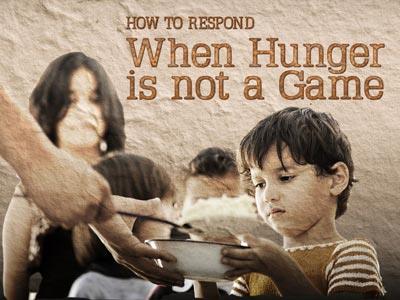-
The Overseer’s Fitness-1
Contributed by Byron Sherman on Jul 30, 2012 (message contributor)
Summary: 1 of 6. Paul related the moral qualifications for an overseer of the Church. Character traits for overseers of the church are definitive. ?How is his fitness determined? An overseer’s fitness is decided by his...
The OVERSEER’s FITNESS-I—1Timothy 3:1-7
Attention:
Americans are fitness freaks!
We watch people on TV getting fit.
We buy videos(in lieu of a personal trainer) to help us get fit.(P90-X—Walk Away the Pounds—etc.)
We want to be fit because we are rightly convinced that a healthy body is better than an unhealthy one.
Need:
Paul related the moral qualifications for an overseer of the Church.
Character traits for overseers of the church are definitive/unequivocal.
?What moral character traits define an overseer’s fitness for office?
?How is an overseer’s fitness determined?
Characteristics by which an overseer’s fitness for office is decided.
1—An overseer’s fitness is decided by...
His DESIRE(:1)
Explanation: (:1)
:1—“This is a faithful saying: If a man desires the position of a bishop, he desires a good work.
Paul is stating a memorable saying. It is worthy of repeating for it “faithfully” encapsulates a valuable Christian truth.
In “bishop/overseer” is described the superintendent aspects of a pastor’s work. He is thus called of God to oversee the ministry/work of a local congregation.
Any who “seek”(are called upon by God for a task) a “bishoprick”(pastoral supervisory ministry) indeed seeks a “good work.” A “good work” is one which seamlessly & harmoniously integrates with God’s plan for the ages. A “good work” pleases God.
The overseer’s Desire is his Calling! Paul will describe below, the moral significance of the one desirous of such a work. This sets it apart as a calling rather than a fleshly desire because these descriptions remove a trust in self.
He “outwardly pursues the ministry because of a driving compulsion on the inside.”—John MacArthur
“Faithful”—pistov—Trusty, faithful, sure, true—reliable; Easily persuaded—believing, confiding, trusting
“Saying”—logov—Word; Reason, the mental faculty of thinking, meditating, reasoning, calculating—2b) account, i.e. regard, consideration—2c) account, i.e. reckoning, score.
“If/If any”—ei tiv—Pron.—1) Whoever, whatever. Strong—1) If any.
“Man”—Not present in text, but implied thru context before & following.
*“Desires/Aspires/Sets his heart on/Stretches forward to”[See here also— epiyumew translated “Desire”]—oregomai—Present Middle Indicative—1)To stretch one’s self out in order to touch or to grasp something, to reach after or desire something; 2)To give one’s self up to the love of money. Used 3X. The physical act.
“Bishop/Overseer/Overseership”[See :2]—episkoph—1)Investigation, inspection, visitation—1a)That act by which God looks into & searches out the ways, deeds character, of men, in order to adjudge them their lot accordingly, whether joyous or sad—1b) oversight—1b1) Overseership, office, charge, the office of an elder, 1b2) The overseer or presiding officers of a Christian church. Strong—Inspection (for relief); by implication--Superintendence; specially--The Christian “episcopate.” Used 4X.
“Desires”[See also oregomai-translated “Desire”]— epiyumew—To turn upon a thing; 2) To have a desire for, long for, to desire; 3) To lust after, covet—3a)3a) Of those who seek things forbidden. Strong—To set the heart upon, i.e. Long for (rightfully or otherwise). The internal compulsion.
“Good”[See :7]—kalov—Beautiful, handsome, excellent, eminent, choice, surpassing, precious, useful, suitable, commendable, admirable. A much higher word. It means beautiful, physically or morally. It is, however, distinctly the beauty which comes from harmony, the beauty which arises from a symmetrical adjustment in right proportion, in other words, from the harmonious completeness of the object concerned. Strong—properly--Beautiful, but chiefly(figuratively)--Good(literally or morally), i.e. Valuable or virtuous(for appearance or use, & thus distinguished from agayov, which is properly intrinsic).
“Work”—ergon—Business, employment, that which any one is occupied—1a) that which one undertakes to do, enterprise, undertaking; 2) any product whatever, any thing accomplished by hand, art, industry, or mind; 3) an act, deed, thing done: the idea of working is emphasized in opp. to that which is less than work.
Argumentation:
Isa. 40:10-11—“Behold, the Lord GOD shall come with a strong hand, And His arm shall rule for Him; Behold, His reward is with Him, And His work before Him. He will feed His flock like a shepherd; He will gather the lambs with His arm, And carry them in His bosom, And gently lead those who are with young.”
1Pet. 5:1-4—“The elders who are among you I exhort, I who am a fellow elder & a witness of the sufferings of Christ, & also a partaker of the glory that will be revealed: Shepherd the flock of God which is among you, serving as overseers, not by compulsion[of men] but willingly, not for dishonest gain but eagerly; nor as being lords over those entrusted to you, but being examples to the flock; & when the Chief Shepherd appears, you will receive the crown of glory that does not fade away.”
Jn. 10:11-14—[Jesus said]““I am the good shepherd. The good shepherd gives His life for the sheep. But a hireling, he who is not the shepherd, one who does not own the sheep, sees the wolf coming & leaves the sheep & flees; & the wolf catches the sheep & scatters them. The hireling flees because he is a hireling & does not care about the sheep. I am the good shepherd; & I know My sheep, & am known by My own.”

 Sermon Central
Sermon Central



